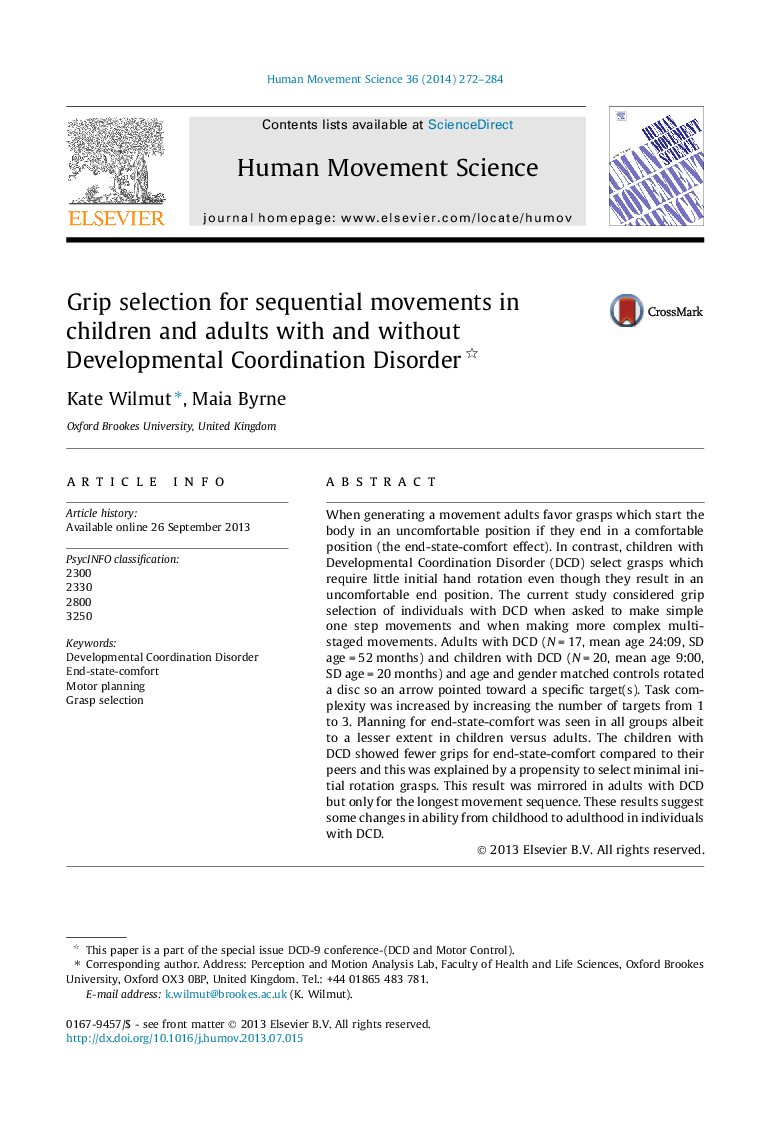| Article ID | Journal | Published Year | Pages | File Type |
|---|---|---|---|---|
| 928339 | Human Movement Science | 2014 | 13 Pages |
When generating a movement adults favor grasps which start the body in an uncomfortable position if they end in a comfortable position (the end-state-comfort effect). In contrast, children with Developmental Coordination Disorder (DCD) select grasps which require little initial hand rotation even though they result in an uncomfortable end position. The current study considered grip selection of individuals with DCD when asked to make simple one step movements and when making more complex multi-staged movements. Adults with DCD (N = 17, mean age 24:09, SD age = 52 months) and children with DCD (N = 20, mean age 9:00, SD age = 20 months) and age and gender matched controls rotated a disc so an arrow pointed toward a specific target(s). Task complexity was increased by increasing the number of targets from 1 to 3. Planning for end-state-comfort was seen in all groups albeit to a lesser extent in children versus adults. The children with DCD showed fewer grips for end-state-comfort compared to their peers and this was explained by a propensity to select minimal initial rotation grasps. This result was mirrored in adults with DCD but only for the longest movement sequence. These results suggest some changes in ability from childhood to adulthood in individuals with DCD.
